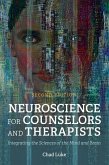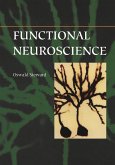This book follows a successful symposium organized in June 2009 at the Human Brain Mapping conference. The topic is at the crossroads of two domains of increasing importance and appeal in the neuroimaging/neuroscience community: multi-modal integration, and social neuroscience.
Most of our social interactions involve combining information from both the face and voice of other persons: speech information, but also crucial nonverbal information on the person's identity and affective state. The cerebral bases of the multimodal integration of speech have been intensively investigated; by contrast only few studies have focused on nonverbal aspects of face-voice integration.
This work highlights recent advances in investigations of the behavioral and cerebral bases of face-voice multimodal integration in the context of person perception, focusing on the integration of affective and identity information.
Several research domains are brought together.Behavioral and neuroimaging work in normal adult humans included are presented alongside evidence from other domains to provide complementary perspectives: studies in human children for a developmental perspective, studies in non-human primates for an evolutionary perspective, and studies in human clinical populations for a clinical perspective.
Several research domains are brought together. Behavioral and neuroimaging work in normal adult humans included are presented alongside evidence from other domains to provide complementary perspectives: studies in human children for a developmentalperspective, studies in non-human primates for an evolutionary perspective, and studies in human clinical populations for a clinical perspective.
Several research domains are brought together. Behavioral and neuroimaging work in normal adult humans included are presented alongside evidence from other domains to provide complementary perspectives: studies in human children for a developmental perspective, studies in non-human primates for an evolutionary perspective, and studies in human clinical populations for a clinical perspective.
Several research domains are brought together. Behavioral and neuroimaging work in normal adult humans included are presented alongside evidence from other domains to provide complementary perspectives: studies in human children for a developmental perspective, studies in non-human primates for an evolutionary perspective, and studies in human clinical populations for a clinical perspective.
Most of our social interactions involve combining information from both the face and voice of other persons: speech information, but also crucial nonverbal information on the person's identity and affective state. The cerebral bases of the multimodal integration of speech have been intensively investigated; by contrast only few studies have focused on nonverbal aspects of face-voice integration.
This work highlights recent advances in investigations of the behavioral and cerebral bases of face-voice multimodal integration in the context of person perception, focusing on the integration of affective and identity information.
Several research domains are brought together.Behavioral and neuroimaging work in normal adult humans included are presented alongside evidence from other domains to provide complementary perspectives: studies in human children for a developmental perspective, studies in non-human primates for an evolutionary perspective, and studies in human clinical populations for a clinical perspective.
Several research domains are brought together. Behavioral and neuroimaging work in normal adult humans included are presented alongside evidence from other domains to provide complementary perspectives: studies in human children for a developmentalperspective, studies in non-human primates for an evolutionary perspective, and studies in human clinical populations for a clinical perspective.
Several research domains are brought together. Behavioral and neuroimaging work in normal adult humans included are presented alongside evidence from other domains to provide complementary perspectives: studies in human children for a developmental perspective, studies in non-human primates for an evolutionary perspective, and studies in human clinical populations for a clinical perspective.
Several research domains are brought together. Behavioral and neuroimaging work in normal adult humans included are presented alongside evidence from other domains to provide complementary perspectives: studies in human children for a developmental perspective, studies in non-human primates for an evolutionary perspective, and studies in human clinical populations for a clinical perspective.
From the reviews:
"The editors did an excellent job of integrating the chapters and allowing information from one part to build on the others. ... Discussions provided by the authors in each of the chapters allow the reader to gain a good sense of the research results as well as identify potential directions for future research. ... Certainly a number of cognitive and neuropsychologists would have an interest in some of the details provided regarding brain mechanisms and neural pathways involved in multisensory processing." (David J. Schroeder, PsycCRITIQUES, Vol. 58 (25), June, 2013)
"This book examines the importance of better understanding social interactions with information from both the face and voice, along with nonverbal cues from the person's identity and emotional state. ... researchers in cognitive science would benefit the most. ... This excellent book covers a lot of ground as it discusses identity and affective information along with impairment issues. Researchers and clinicians with a background in neuroscience will appreciate this book." (Gary B. Kaniuk, Doody's Book Reviews, January, 2013)
"The editors did an excellent job of integrating the chapters and allowing information from one part to build on the others. ... Discussions provided by the authors in each of the chapters allow the reader to gain a good sense of the research results as well as identify potential directions for future research. ... Certainly a number of cognitive and neuropsychologists would have an interest in some of the details provided regarding brain mechanisms and neural pathways involved in multisensory processing." (David J. Schroeder, PsycCRITIQUES, Vol. 58 (25), June, 2013)
"This book examines the importance of better understanding social interactions with information from both the face and voice, along with nonverbal cues from the person's identity and emotional state. ... researchers in cognitive science would benefit the most. ... This excellent book covers a lot of ground as it discusses identity and affective information along with impairment issues. Researchers and clinicians with a background in neuroscience will appreciate this book." (Gary B. Kaniuk, Doody's Book Reviews, January, 2013)









